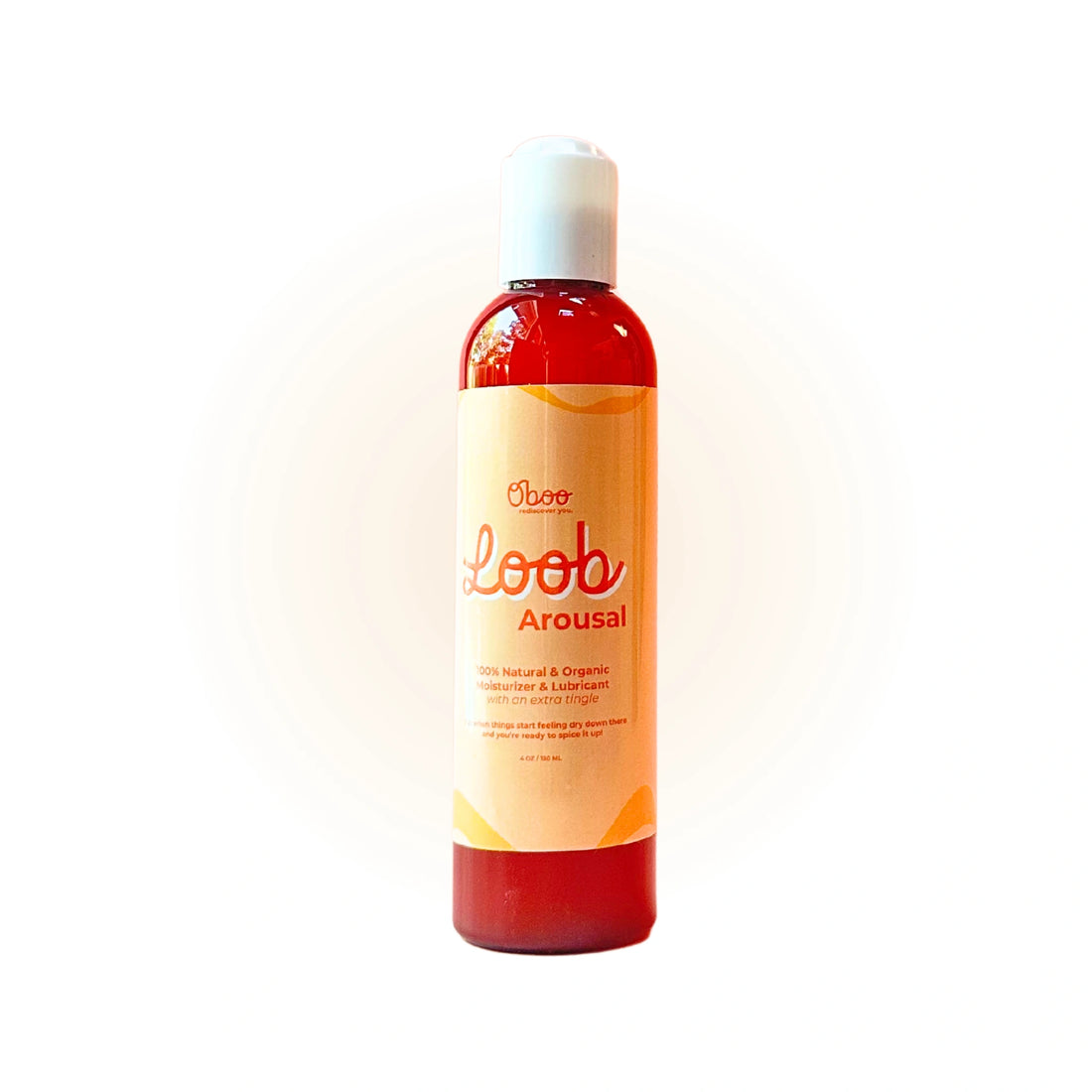Perimenopause and menopause are significant phases in a woman's life, often bringing with it a whirlwind of symptoms like hot flashes, mood swings, and vaginal dryness. With symptoms affecting sleep, relationships, and physical comfort, it isn't something women should be ignoring or "dealing with." Menopause and perimenopause deserve treatment. Enter Hormone Replacement Therapy (HRT)—a treatment designed to alleviate these distressing symptoms by replenishing the body with hormones that are lost during the menopausal transition.
HRT primarily involves the administration of estrogen and progesterone, two key hormones that play vital roles in a woman's reproductive system. There is also a lesser-discussed testosterone therapy that we will explain. By reintroducing these hormones, HRT can help mitigate the uncomfortable and sometimes debilitating symptoms of menopause.
Understanding Hormone Replacement Therapy (HRT)
Before exploring the benefits of Hormone Replacement Therapy (HRT), it's important to understand what it is and how it works.
What is HRT?
HRT involves supplementing the body with hormones that decline during menopause, primarily estrogen and progesterone. This replenishment helps mitigate menopause-related issues, offering a smoother transition through this significant life phase.
How HRT Works
When menopause begins, your body's natural hormone production decreases significantly. This hormonal shift can cause uncomfortable symptoms such as hot flashes, night sweats, mood swings, and vaginal dryness. Actually, there are more than 40 symptoms of perimenopause! HRT helps by replenishing these hormones, restoring balance, and easing these challenging symptoms.
Types of Hormones in HRT
Two main players dominate the HRT arena:
Estrogen:
The star of the show. Estrogen therapy can be a game-changer for women experiencing severe menopausal symptoms.
- Alleviating Symptoms: Estrogen is highly effective in reducing common menopausal symptoms such as hot flashes, night sweats, and vaginal dryness. These symptoms can significantly impact daily life, making estrogen an essential component for improving quality of life.
- Bone Health: Estrogen also plays a vital role in maintaining bone density. As estrogen levels drop during menopause, the risk of osteoporosis increases. Supplementing with estrogen helps protect against bone loss and reduces the risk of fractures.
- Cardiovascular Benefits: There's evidence suggesting that estrogen benefits heart health by maintaining healthy cholesterol levels and improving blood vessel function. This can lower the risk of cardiovascular diseases, which tend to increase after menopause.
- Mental Well-being: Estrogen's influence extends to mental health, helping to stabilize mood swings and reduce the risk of depression and anxiety that can accompany menopause.
- Skin Elasticity: Another key benefit is its positive impact on skin elasticity and moisture, combating the dry and thinning skin often associated with low estrogen levels. Moreover, these benefits extend beyond visible skin improvements, offering significant relief for dryness in the vulva and vagina.
By addressing these various aspects, estrogen serves as a comprehensive solution for women navigating the complexities of menopause.
Progesterone:
The sidekick that ensures safety. Progesterone is often paired with estrogen in HRT protocols to protect against the potential risk of uterine cancer. When estrogen is used alone, it can stimulate the lining of the uterus (endometrium) and increase the risk of endometrial hyperplasia, which can lead to cancer. By adding progesterone, this risk is significantly reduced. Progesterone works by counteracting the proliferative effects of estrogen on the endometrial lining, promoting its regular shedding and preventing abnormal cell growth. Further, progesterone is available in various forms such as pills, creams, gels, and intrauterine devices (IUDs), allowing for tailored treatment plans based on individual needs and preferences. Beyond its protective role, progesterone can also help alleviate symptoms like mood swings and sleep disturbances often associated with menopause. Hot tip: talk to your menopause specialist about using bioidentical progesterone (chemically identical to what your body naturally produces) rather than synthetic progestins, which may carry different risks and side effects.
In summary, progesterone plays a critical role in combination HRT by ensuring the safety and effectiveness of estrogen supplementation.
Estrogen Therapy vs. Combination Therapy
- Estrogen Therapy: This option focuses solely on estrogen supplementation. It's typically recommended for women who have had a hysterectomy since they no longer have a uterus and hence don't need progesterone to counteract estrogen's effects.
- Combination Therapy: Here, both estrogen and progesterone team up. This dual approach is essential for women who still have their uterus, as progesterone helps mitigate the risk of endometrial cancer posed by estrogen alone.
Testosterone Therapy
While often overlooked, testosterone therapy can play a significant role in women's health during and after menopause. Though testosterone is commonly associated with male physiology, it is also crucial for women, contributing to libido, energy levels, and overall well-being.
- Libido Enhancement: Testosterone therapy can help address sexual dysfunction, boosting libido and sexual satisfaction.
- Energy Levels: Women receiving testosterone therapy often report increased energy and reduced fatigue.
- Muscle Mass and Bone Density: This therapy can contribute to maintaining muscle mass and bone density, which naturally decline with age.
Hormone replacement therapy continues to be a hot topic in medicine, with many menopause specialists feeling frustrated over the misinformation. And more so for testosterone therapy for women—it's like the forbidden fruit of HRT! Despite more than 30 FDA-approved testosterone therapies for men, women in the U.S. have zilch. This leaves millions of women dealing with pesky perimenopausal and menopausal symptoms that testosterone could easily tackle.
The evidence is stacking up in favor of using physiologic doses of testosterone for better sexual function, osteoporosis prevention, brain protection, and even breast protection. Seriously, we've got 80 years' worth of safety data here! A recent study on subcutaneous hormone-pellet therapy looked at a big group of patients over seven years and found it to be safe long-term. Plus, two large-scale studies showed a significant drop in invasive breast cancer rates among women on testosterone therapy.
But here's the kicker: Testosterone treatment for women still isn't FDA-approved! Why? Because the FDA wants to make sure the long-term effects and safety are crystal clear before giving it the thumbs-up. It’s like waiting for a sequel to your all-time favorite movie—they want everything to be perfect. So while some doctors might prescribe it off-label, make sure you have a heart-to-heart with your healthcare provider first. Nobody wants an unexpected plot twist when it comes to their health!
By understanding these hormone replacement therapy options—whether it's testosterone therapy, estrogen therapy, or combination therapy—you can better appreciate how tailored treatments can address unique menopausal needs effectively.
The Profound Benefits of Hormone Replacement Therapy

1. Effective Symptom Relief with HRT
Menopause can feel like a never-ending rollercoaster, with symptoms that seem to pop up when you least expect them. Hot flashes, vaginal dryness, and mood changes are just a few of the pesky companions that tag along during this transition. In fact, according to Dr. Mary Claire Haver, there are over 40 symptoms that can be associated with declining estrogen levels. These symptoms don't just affect your body; they can also seriously mess with your daily life.
Sitting in an important meeting, you're suddenly hit with a wave of heat that feels like you're sitting inside an oven. That's a hot flash for you. Or the discomfort and pain during intimacy due to vaginal dryness. These aren't just minor inconveniences—they're significant disruptors that deserve treatment.
Enter Hormone Replacement Therapy (HRT)
HRT acts as a dependable ally, particularly during menopause. By replenishing your body with hormones such as estrogen and progesterone, HRT helps stabilize hormonal fluctuations, providing relief from these troubling symptoms.
Benefits of HRT:
- Hot Flashes Relief: Numerous women have reported significant reductions in both the frequency and severity of hot flashes after starting HRT.
- Vaginal Dryness Treatment: Say goodbye to discomfort during intimate moments! HRT helps restore vaginal moisture, making sex enjoyable again.
- Mood Stability: No more feeling like you're on an emotional seesaw. HRT can help level out mood swings, giving you a much-needed sense of emotional stability.
- Improved Sleep Quality: Many women find that their sleep patterns improve significantly with HRT, reducing insomnia and night sweats.
- Skin Health: Hormones play a vital role in skin elasticity and hydration. HRT can help maintain healthier, more youthful-looking skin.
- Cognitive Function: Some studies suggest that HRT may have a positive impact on cognitive function, potentially reducing the risk of memory loss and other cognitive issues.
- Metabolic Support: By stabilizing hormone levels, HRT can assist in maintaining a healthy metabolism, which can be beneficial for weight management.
Scientific Studies Backing It Up
It's not just anecdotal evidence that supports the benefits of hormone replacement therapy. Scientific studies have shown consistent results:
- A study published in the Journal of Women's Health found that women who used HRT experienced a 75% reduction in the frequency of hot flashes.
- Research in the American Journal of Obstetrics & Gynecology affirmed that HRT significantly improves vaginal health by increasing lubrication and elasticity.
So, if perimenopause and menopause feels like it's taking over your life, hormone replacement therapy could be your ticket back to normalcy. The benefits of hormone replacement therapy are well-documented and supported by both personal testimonies and robust scientific research. Whether you're struggling with hot flashes relief, vaginal dryness treatment, or mood stability issues, HRT offers a promising solution to reclaim control over your well-being.
2. Preserving Bone Health Through Hormones
Menopause brings about hormonal changes that can greatly affect bone health, increasing the risk of osteoporosis and fractures. One of the key hormones affected during menopause is estrogen, which plays a vital role in maintaining bone density. When estrogen levels drop, bones may become fragile and more susceptible to breaking.
Benefits of Hormone Replacement Therapy:
- Osteoporosis Prevention: HRT helps counteract the rapid bone loss that typically occurs post-menopause. By supplementing with estrogen (and sometimes progesterone), HRT can slow down the deterioration of bone tissue, effectively reducing the risk of osteoporosis.
- Bone Density Maintenance: Numerous studies have shown that HRT can help maintain or even improve bone density. For instance, research published in The Journal of Clinical Endocrinology & Metabolism found that women who underwent HRT had significantly higher bone mineral density compared to those who did not.
Scientific studies provide robust support for these benefits:
- A study from the Women's Health Initiative highlighted that women on HRT experienced fewer fractures than those not on therapy.
- Research from The Lancet confirmed that estrogen therapy significantly reduces the incidence of hip and vertebral fractures among postmenopausal women.
By preserving bone mass and reducing fracture risk, hormone replacement therapy offers a compelling benefit beyond just symptom relief. Women on HRT often find themselves better protected against the debilitating consequences of osteoporosis, enjoying a more active and independent lifestyle.
The focus on bone health underscores the comprehensive advantages of HRT, making it a multifaceted ally for women navigating menopause.
3. Cardiovascular Protection: A Potential Benefit of Early HRT Initiation
Slash your heart disease risk with the buzzworthy benefits of hormone replacement therapy. Research hints that jumping on the HRT bandwagon early in menopause could shield you from heart disease, offering an enticing boost to your cardiovascular game.
Research Insights:
- Early Initiation Matters: Research indicates that initiating HRT during the early stages of menopause might confer cardiovascular benefits. This timing is critical because it's believed that younger, healthier arteries are more responsive to the positive effects of estrogen.
- Reduced Heart Disease Incidence: A study published in The New England Journal of Medicine highlighted that women who began HRT within ten years of menopause onset had a significantly lower incidence of heart disease compared to those who started later.
Timing isn't just a minor detail; it's a game-changer when considering HRT as part of a comprehensive approach to cardiovascular health. By starting HRT earlier, women may experience enhanced protection against heart disease, which is a leading cause of mortality among postmenopausal women. This isn't nothing!
It's not all about timing, though. Understanding how HRT influences heart health involves looking at:
- Estrogen's Role: Estrogen plays a crucial role in maintaining vascular health by promoting blood vessel flexibility and reducing arterial plaque buildup.
- Combination Therapy: For some women, combining estrogen with progesterone can offer additional benefits. Progesterone helps balance the potential risks associated with estrogen-only therapies.
While this sounds promising, it's essential to weigh these benefits against potential risks specific to each individual. Consulting with healthcare providers about the right time to start HRT ensures a plan tailored to your unique medical history and health goals. Your heart will thank you for it!
4. Enhancing Quality of Life Through Hormonal Balance
Hormone Replacement Therapy (HRT) isn't just about tackling the physical symptoms of menopause; it's also a game-changer for psychological well-being. Imagine saying goodbye to those relentless hot flashes and vaginal dryness and welcoming a newfound sense of balance and calm. Let's dive into the transformative benefits of hormone replacement therapy.
The Impact of HRT on Mental Health
The magic of HRT lies in its ability to stabilize mood swings and enhance sleep quality, which are often disrupted during menopause. Studies have shown that hormonal fluctuations can wreak havoc on mental health, leading to increased anxiety, depression, and irritability. By restoring hormonal balance, HRT helps smooth out these emotional rollercoasters, making daily life more manageable.
Real Stories from Women
Here’s what some women have to say about their experiences:
"Before starting HRT, I felt like my emotions were out of control. Now, I feel more like myself—stable and happy."
"I used to wake up multiple times a night drenched in sweat. Since starting HRT, my sleep has improved dramatically."
These personal testimonies align with scientific research highlighting the benefits of hormone replacement therapy. Women on HRT often report a marked improvement in their overall well-being, thanks to better mood stability and fewer sleep disturbances.
Key Benefits of HRT
Key benefits include:
- Mood Stability: With balanced hormones, emotional ups and downs become less severe.
- Sleep Quality Enhancement: Better hormonal regulation leads to more restful nights.
- Symptom Relief: Reduction in hot flashes and vaginal dryness, contributing to day-to-day comfort.
- Cognitive Function: Some studies suggest that HRT may help maintain cognitive function as women age.
- Skin Health: Improved skin elasticity and hydration due to hormonal support.
- Sexual Health: Increased libido and reduced discomfort during intercourse, enhancing intimate relationships.
HRT doesn't just tackle the pesky symptoms; it can affect your quality of life. Say goodbye to the physical discomforts and psychological hurdles of menopause, and hello to a more vibrant, balanced you.
Navigating Risks and Considerations with Hormone Replacement Therapy
Acknowledging Potential Risks
Hormone Replacement Therapy (HRT) can be a game-changer, but like any powerful tool, it comes with its caveats. While HRT offers substantial benefits, it's crucial to recognize potential risks. Here are a few risks you should be aware of:
- Breast Cancer Risk Assessment: Some studies suggest that prolonged HRT use might increase the risk of breast cancer. This is particularly relevant for combination therapy that includes both estrogen and progesterone.
- Uterine Cancer Risk Evaluation: For women who still have their uterus, taking estrogen without progesterone can heighten the risk of uterine cancer. Adding progesterone helps mitigate this risk but comes with its own set of considerations.
- Other Health Concerns: Long-term HRT has also been associated with increased risks of blood clots and strokes in some women, especially those who start HRT later in their menopausal journey.
Understanding these risks is the first step towards making an informed decision about whether HRT is right for you.
Consultation with Qualified Physicians for Personalized Treatment Plans
So, what are the next steps? Finding a healthcare provider who knows their stuff. Not all physicians are created equal when it comes to hormone therapy. You’ll want someone experienced in prescribing HRT—someone who can tailor a treatment plan to your unique medical history and symptomatology.
Why Consult a Specialist?
- Personalized Risk Assessment: A qualified physician can conduct a thorough breast cancer risk assessment and uterine cancer risk evaluation tailored to your specific health profile.
- Customized Treatment Plans: Your doctor can help you navigate the maze of options—whether it's estrogen therapy, combination therapy, or even non-hormonal alternatives—and customize a plan that best suits your needs.
- Ongoing Monitoring: Regular check-ups are crucial. They ensure that your treatment is effective while keeping an eye on any potential side effects or emerging risks.
What to Expect During Your Consultation
- Medical History Review: Prepare for deep dives into your medical history, including any family history of cancers or cardiovascular issues.
- Symptom Discussion: Be ready to discuss how menopause symptoms impact your daily life—this helps in crafting a treatment plan that offers maximum relief.
- Risk Evaluation: Expect detailed discussions about the pros and cons of different types of therapies, based on your personal risk factors.
- Long-Term Strategy: Your doctor will likely outline a plan for regular monitoring and adjustments to your therapy as needed.
Questions to Ask Your Doctor
- What is my risk for breast or uterine cancer if I start HRT?
- How often will I need follow-up visits to monitor my treatment?
- Are there alternative treatments that might work for me?
By teaming up with healthcare pros who know their hormone therapy, you're not just snagging a prescription—you're scoring a health journey buddy.
Exploring Alternatives: Non-Hormonal Options for Menopause Management

Not everyone wants to jump on the hormone replacement therapy bandwagon, and that's totally okay! There are plenty of non-hormonal medication alternatives out there that can help you manage menopause symptoms like a boss.
Lifestyle Modifications
- Regular Exercise: Physical activity can work wonders in alleviating some of those pesky menopause symptoms. Whether it's yoga, swimming, or even just brisk walking, getting your body moving can reduce hot flashes and improve mood.
- Stress Reduction Techniques: From mindfulness meditation to deep-breathing exercises, reducing stress can significantly improve your overall well-being. Stress management techniques help balance cortisol levels, which in turn keeps menopausal symptoms at bay.
- Dietary Adjustments: Consuming a balanced diet rich in fruits, vegetables, and whole grains can stabilize blood sugar levels and reduce hot flashes. Foods high in phytoestrogens like soy products might also offer some relief.
- Masturbation to Support Libido: Regular masturbation can help maintain sexual function and libido by increasing blood flow to the genital area and boosting mood-enhancing endorphins.
- Topical Treatments: Over-the-counter lubricants and balms can provide immediate relief. Look for products specifically designed for vaginal use to ensure they are safe and effective. Aloe vera gels and vitamin E oils are also popular choices for their soothing properties. Cooling sprays can also offer a quick solution for hot flashes or night sweats.
Over-the-Counter Solutions
- Vaginal Lubricants and Moisturizers: These can be lifesavers for managing vaginal dryness without resorting to hormones.
- Herbal Supplements: Black cohosh, red clover, and evening primrose oil are popular choices. While scientific evidence varies, many women swear by them.
Prescription Medications
Certain prescription medications not containing hormones can also be effective:
- Selective Serotonin Reuptake Inhibitors (SSRIs): Medications like fluoxetine or paroxetine can help manage mood swings and hot flashes.
- Gabapentin: Originally used for nerve pain and seizures, gabapentin has shown promise in reducing hot flashes.
By exploring these non-hormonal avenues with your doctor, you get to tailor your menopause management plan to fit your unique lifestyle and needs.
Recent Research Advancements Shaping Our Understanding Of Hormone Replacement Therapy
Recent studies have shed new light on the safety and effectiveness of hormone replacement therapy. Esteemed institutions like Yale University have led rigorous research efforts, producing invaluable insights that shape our current understanding.
Yale University Studies
These studies underline both the benefits and risks associated with different HRT approaches. For instance, some findings emphasize that early initiation of hormone therapy can potentially protect against heart disease, particularly in women under 60 or those in early menopause.
Safety and Effectiveness
The latest findings underscore the nuanced nature of HRT. While there are undeniable benefits, such as effective symptom relief and improved bone density, it's crucial to tailor therapy to individual needs. Personalized treatment plans based on medical history and symptomatology remain paramount.
Risks vs. Benefits
New data suggest that while hormone therapy can significantly enhance quality of life, it must be approached with caution due to associated risks like breast cancer and cardiovascular issues.
Understanding these complexities allows for more informed decisions about menopausal management, ensuring that each woman can confidently navigate her unique journey with HRT.
Empowering Women Through Informed Choices on Hormone Replacement Therapy
Making informed decisions about hormone replacement therapy is your chance to shine and take control! Every woman's menopausal journey is her own unique adventure, and it's all about balancing those fabulous perks with potential pitfalls.
- Evaluate Benefits and Risks: Get the lowdown on the big wins HRT can bring, like easing symptoms, boosting bone health, and offering some heart protection. But don't forget to discuss potential risks with your doctor.
- Seek Reliable Information: Dive into reputable sources and cutting-edge studies to stay in the loop about HRT. Remember, knowledge is your secret weapon.
- Personalized Consultation: Chat with healthcare pros who get you—your history, your needs—and can craft a treatment plan just for you.
Hormone replacement therapy isn't a cookie-cutter fix. Take this opportunity to make decisions that resonate with your life and elevate your well-being.
Like this article? Sign up below to get more like this delivered straight to your inbox! Want our take on something specific? Email us at hi@oboo.love.
Just a friendly reminder: This blog is here to share love and knowledge, not to replace your doc! We are not medical providers or experts. For any health questions or medical concerns, always chat with a qualified healthcare professional. Stay fabulous!










